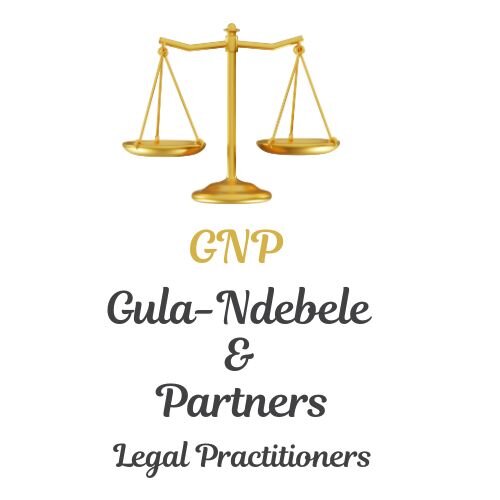Best Administrative Lawyers in Bulawayo
Share your needs with us, get contacted by law firms.
Free. Takes 2 min.
List of the best lawyers in Bulawayo, Zimbabwe
About Administrative Law in Bulawayo, Zimbabwe
Administrative law in Bulawayo, Zimbabwe, is the area of law that governs the actions and operations of governmental agencies, including both local and national bodies. It concerns the rules, regulations, and decisions made by government officials and departments, as well as how individuals and organisations can challenge or seek review of those decisions. Administrative law is vital for ensuring the government acts within the law and respects citizens' rights, offering a framework for accountability and transparency in public administration. In Bulawayo, these issues may relate to local government authorities, licensing bodies, regulatory agencies, and other public offices that impact daily life and business activities.
Why You May Need a Lawyer
Navigating administrative law issues can be complex. You may require legal assistance in various situations, such as:
- Challenging a decision or action taken by a government agency or official that you believe is unfair or unlawful
- Dealing with issues regarding permits, licences, or registrations with public institutions
- Filing appeals against decisions related to social benefits, land, housing, or employment involving government entities
- Seeking information or documents from government offices through freedom of information laws
- Defending against enforcement actions or penalties imposed by regulatory bodies
- Addressing disputes involving public tenders or procurement processes
- Ensuring proper procedures were followed by public officials in administrative processes
A lawyer experienced in administrative law can help you understand your legal rights, navigate the often complex procedural requirements, and represent you in reviews and appeals.
Local Laws Overview
Key administrative law aspects in Bulawayo are influenced by both national and local legal frameworks. The Administrative Justice Act of Zimbabwe is a central piece of legislation, ensuring that administrative decisions are lawful, reasonable, and procedurally fair. It grants citizens the right to written reasons for government decisions affecting them, and provides avenues for judicial review of administrative actions.
On the local level, Bulawayo City Council by-laws and regulations affect matters such as business licensing, land use, housing allocation, building codes, and environmental regulation. These local regulations must align with national laws, but may introduce specific requirements relevant to Bulawayo. Procedural fairness, the right to be heard before adverse decisions, and access to fair review mechanisms are all principles upheld by both local and national administrative law in Zimbabwe.
Frequently Asked Questions
What is administrative law and how does it affect me in Bulawayo?
Administrative law governs decisions and actions made by public bodies and officials. It secures your rights in dealing with government agencies, from obtaining permits to appealing decisions that affect you.
How do I challenge a decision made by a government authority in Bulawayo?
You can start by requesting written reasons for the decision. If you believe the decision was unfair or contrary to the law, you can seek a review, either through internal appeal procedures or by approaching the courts.
What are some examples of administrative law issues specific to Bulawayo?
Common issues include business licensing with the Bulawayo City Council, land and housing allocation, municipal fines and penalties, dispute over council rates or services, and compliance with city by-laws.
Can I request information from a government office in Bulawayo?
Yes. Under freedom of information laws and the Administrative Justice Act, you have the right to request relevant documents and reasons for administrative decisions from government offices.
What is judicial review and when can I use it?
Judicial review is a court process where a judge examines the lawfulness of a decision or action by a government official or body. You can use it if internal remedies have been exhausted and you believe your rights have been violated.
Is there a time limit for challenging administrative decisions?
Yes. Timeframes for lodging appeals or judicial reviews are often strict. You generally need to act quickly after being notified of a decision, so it is important to seek legal advice as soon as possible.
Do I need a lawyer to handle administrative law issues in Bulawayo?
While not always mandatory, having a lawyer significantly increases your chances of success, especially where legal procedures and arguments are involved. Lawyers also ensure your submissions comply with procedural rules.
What are my rights if I am sanctioned or penalized by a regulatory body?
You have the right to fair treatment, to be informed of the reasons for the sanction, to defend yourself, and to appeal the decision if you believe it is unjustified.
How can I prove that an administrative act was unlawful or unfair?
This involves demonstrating lack of procedural fairness, absence of legal authority, bias, unreasonable delay, or failure to consider relevant information. An experienced lawyer can guide you through this evidence-gathering process.
Where are administrative law cases usually heard in Bulawayo?
Most administrative law disputes are handled by the High Court, but some may begin with administrative tribunals or internal review panels. Your lawyer will advise on the proper forum for your case.
Additional Resources
If you need further information or assistance regarding administrative law in Bulawayo, consider reaching out to the following resources:
- Legal Resources Foundation - provides free or affordable legal advice and assistance
- Zimbabwe Lawyers for Human Rights - supports public interest and human rights related administrative cases
- Bulawayo City Council Legal Department - for inquiries on local by-laws, permits, and appeals
- Zimbabwe Human Rights Commission - addresses complaints regarding administrative injustice by public officials
- High Court of Zimbabwe (Bulawayo) - handles judicial review and appeals of administrative decisions
Next Steps
If you believe you have an administrative law issue or have been affected by a government decision in Bulawayo:
- Gather all relevant documentation, including correspondence, notices and evidence of the administrative decision
- Request written reasons for the decision if you have not received them
- Seek prompt legal advice to understand your rights and the available remedies
- Contact a qualified legal practitioner with experience in administrative law in Bulawayo
- Ensure you meet any deadlines for appeals or reviews to avoid forfeiting your rights
Taking early action is crucial. With the help of a skilled lawyer, you can navigate the procedural requirements and increase your chances of a fair outcome in your administrative matter.
Lawzana helps you find the best lawyers and law firms in Bulawayo through a curated and pre-screened list of qualified legal professionals. Our platform offers rankings and detailed profiles of attorneys and law firms, allowing you to compare based on practice areas, including Administrative, experience, and client feedback.
Each profile includes a description of the firm's areas of practice, client reviews, team members and partners, year of establishment, spoken languages, office locations, contact information, social media presence, and any published articles or resources. Most firms on our platform speak English and are experienced in both local and international legal matters.
Get a quote from top-rated law firms in Bulawayo, Zimbabwe — quickly, securely, and without unnecessary hassle.
Disclaimer:
The information provided on this page is for general informational purposes only and does not constitute legal advice. While we strive to ensure the accuracy and relevance of the content, legal information may change over time, and interpretations of the law can vary. You should always consult with a qualified legal professional for advice specific to your situation.
We disclaim all liability for actions taken or not taken based on the content of this page. If you believe any information is incorrect or outdated, please contact us, and we will review and update it where appropriate.












